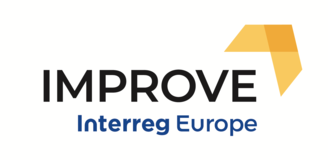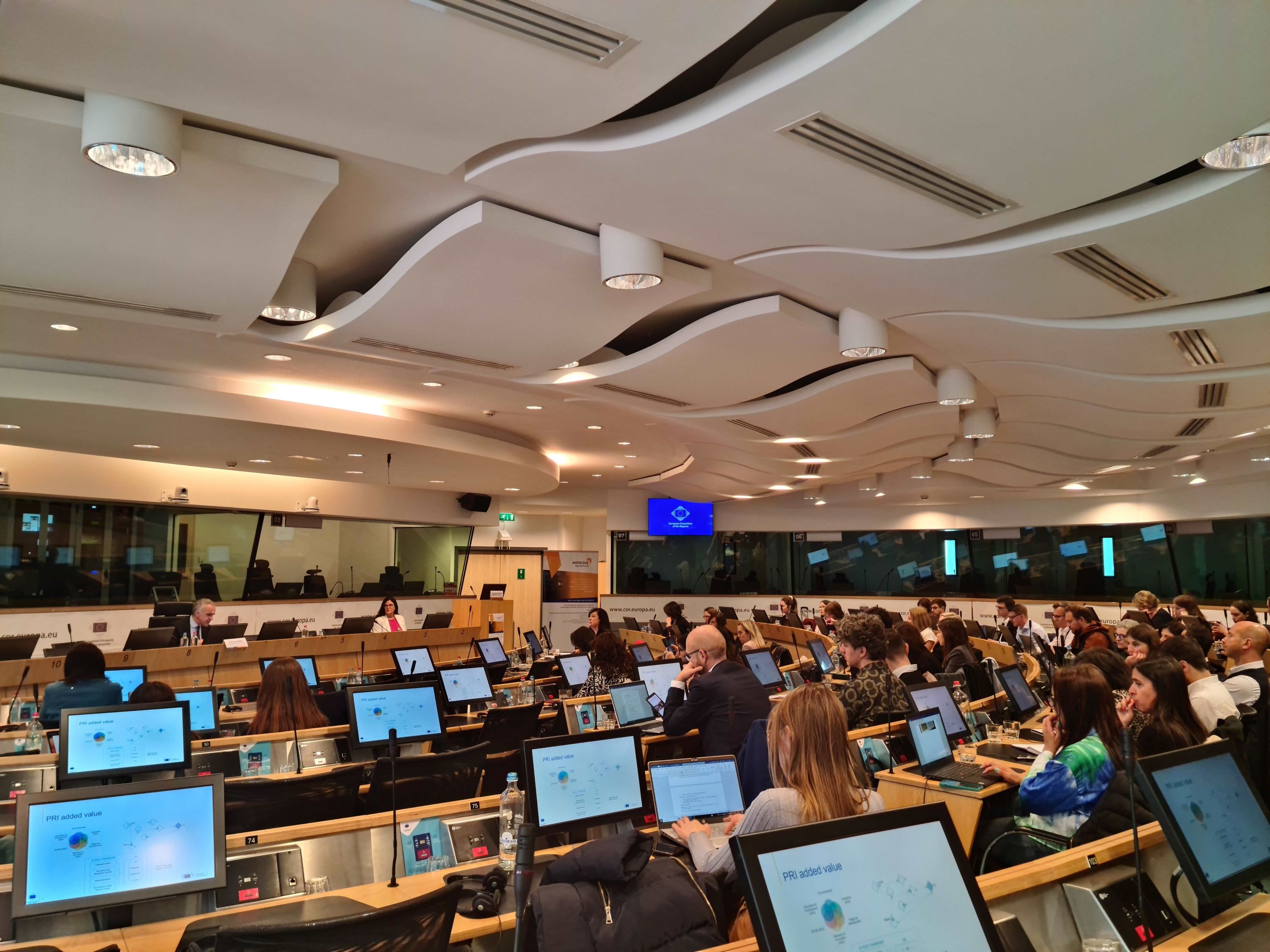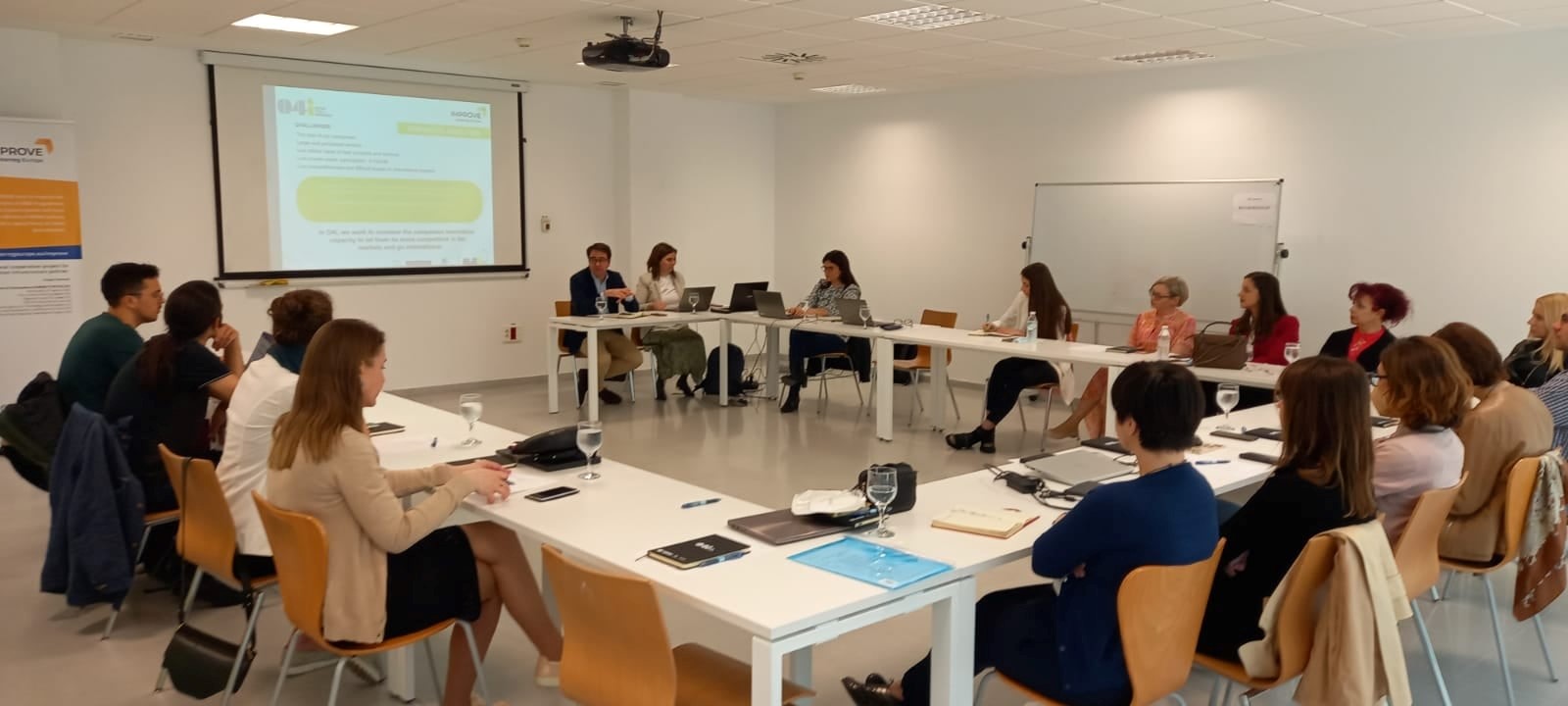What tools can contribute to improve regional policies supporting research and innovation? On 6th April ARTI – the Agency for Technology and Innovation of Apulia Region proposed an in-depth focus on some of these tools, addressed at the partners of the European project Improve visiting Puglia, interested in exchange experiences in monitoring, evaluation issues, and governance processes of regional policies to support research and development in Puglia.
ARTI hosted in its headquarters the representatives of four of its European counterparts, from Spain (Fundecyt Foundation Scientific and Technological Park of Extremadura), France (Development Agency DEV'UP Center-Loire Valley), Portugal (Commission regional coordination and development of the Center), Bulgaria (Municipality of Gabrovo).
The meeting, divided into two sessions, in the morning and in the afternoon, aimed at presenting the main management elements of some measures of the Apulia Region supporting R&D&i, to focus on the monitoring and evaluation activities of the regional Smart Specialization Strategy (S3) and to measure the impact of these policies for improving their effectiveness.
ARTI presented to the partners the monitoring system of the Apulian RIS3, which is developed through a series of questionnaires addressed to the beneficiaries of the support measures to assess their impacts. The system, proposed through a web interface, is included in the new regional Smart Specialization Strategy (Smart Puglia 2030), developed by Apulia Region in collaboration with ARTI to define regional objectives, challenges and priorities for coming years.
After a detailed presentation of activities and role of ARTI, and of an overview of the governance system of regional innovation policies, the representatives of intermediary organisations such as Innovapuglia and Pugliasviluppo presented some regional innovation policies and discussed on results and perspectives of the new programming period. the ARTI Knowledge Hub was, the system of the Agency for organizing, processing and disseminating data and information to support decisions, was also presented, together with the ongoing evaluation of Apulian RIS3 and monitoring process of the impact of the regional cluster policy regulation.
During the meeting many moments of discussion and dialogue characterized the two sessions and the conclusions. The meeting ended with a walking tour around the old town to get the group to know the history of medieval Bari.












